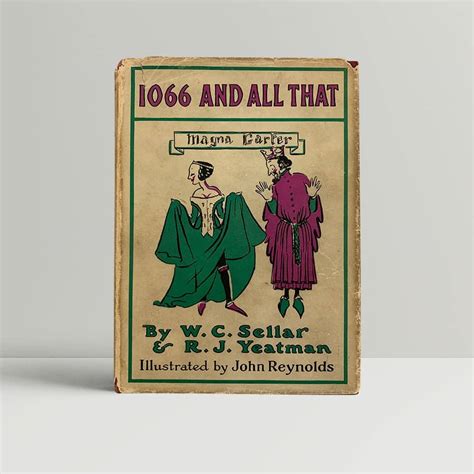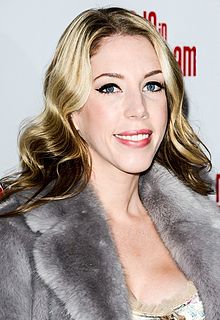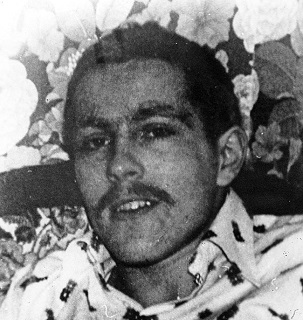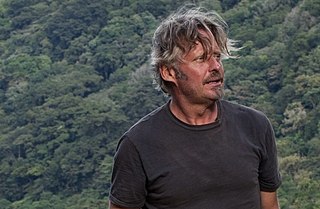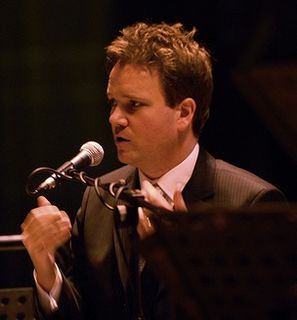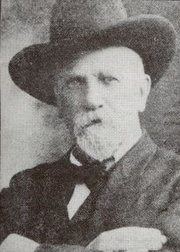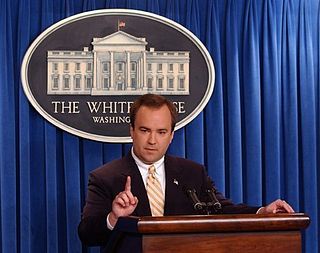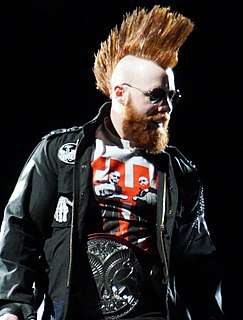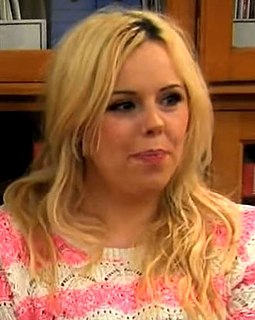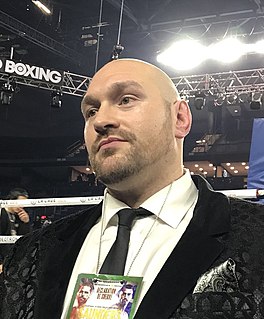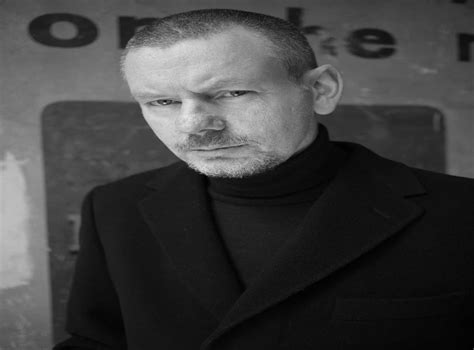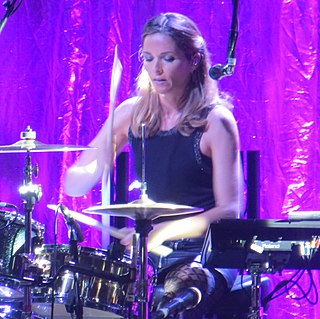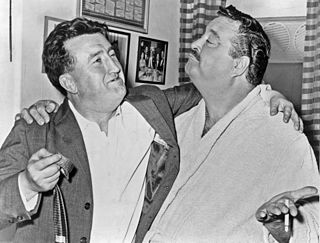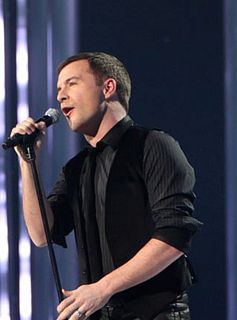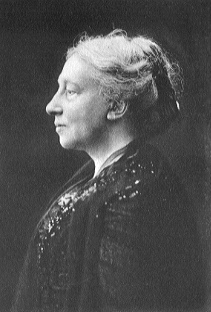Top 1200 Ireland And The Irish Quotes & Sayings
Explore popular Ireland And The Irish quotes.
Last updated on April 14, 2025.
On this day, millions of people...throughout the world will gather to commemorate the life of Patrick, patron saint of Ireland. From his days as a slave in Ireland to his work as missionary years later, St. Patrick demonstrated a courage, commitment, and faith that won the hearts and minds of the Irish people. St. Patrick's Day also serves as a time for people of Irish descent from all traditions and religions to honor their native land and shared heritage. Their devotion to family, faith, and community has strengthened our country's character.
Ireland is a place that's beautiful and interesting, but I remember when I went there as a teenager with my parents, I was like, "Okay, I'll go to Ireland with my parents. It's going to be green." I think people underestimate it, in that it's, "Oh, it's green," and then you get there, and it's like, "Wow, it is green!" It's, "Oh, there's Irish music," and then you get there, and you're like, "Oh, this Irish music is amazing!" You underestimate it.
Ireland, as distinct from her people, is nothing to me; and the man who is bubbling over with love and enthusiasm for "Ireland," and can yet pass unmoved through our streets and witness all the wrong and the suffering, shame and degradation wrought upon the people of Ireland-yea, wrought by Irishmen upon Irish men and women, without burning to end it, is, in my opinion, a fraud and a liar in his heart, no matter how he loves that combination of chemical elements he is pleased to call Ireland.
Throughout my childhood, I did a form of Irish dancing that was kind of the precursor to 'Riverdance.' It was a mixture of ballet and Irish dancing that my teacher, Patricia Mulholland, had invented, essentially. It was Irish ballet, and she would create performances based around the myths and legends of Ireland.
No Irish nationalist could support any treaty which institutionalizes British government claims to a part of Irish national territory. Indeed, the term - 'constitutional nationalism'- used by Mr.Mallon (SDLP) and his colleagues to describe their political philosophy is a contradiction in terms. The only constitutional nationalist in Ireland today is Sean McBride. He puts his nationalism within a framework of Irish constitutionality. Mr. Mallon, however, puts his within the framework of British constitutionality. Irish nationalism within British constitutionality is a contradiction in terms.
My background is Protestant so I benefited from the great Bible teaching that was provided there... I did love the more culturally classical things, like Irish music, which I think is some of the most congregational-style music when you think of... 'St. Patrick's Breastplate' (and) 'Danny Boy.' These are traditional Irish melodies. I think being brought up there (Ireland) gave me a sense of melody that is very attuned to congregational singing.
Ireland is a series of stories that have been told to us, starting with the Irish Celtic national revival. I never believed in 'Old Ireland.' It has been made all of kitsch by the diaspora, looking back and deciding what Ireland is. Yes, it is green. Yes, it is friendly. I can't think of anything else for definite.
'A Naval History of Britain' which begins in the 7th century has to explain what it means by Britain. My meaning is simply the British Isles as a whole, but not any particular nation or state or our own day... 'Britain' is not a perfect word for this purpose, but 'Britain and Ireland' would be both cumbersome and misleading, implying an equality of treatment which is not possible. Ireland and the Irish figure often in this book, but Irish naval history, in the sense of the history of Irish fleets, is largely a history of what might have been rather than what actually happened.
The Irishman frees himself from slavery when he realizes the truth that the capitalist system is the most foreign thing in Ireland. The Irish question is a social question. The whole age-long fight of the Irish people against their oppressors resolves itself in the last analysis into a fight for the mastery of the means of life, the sources of production, in Ireland. Who would own and control the land? The people, or the invaders; and if the invaders, which set of them - the most recent swarm of land thieves, or the sons of the thieves of a former generation?
All these mountains of Irish dead, all these corpses mangled beyond recognition, all these arms, legs, eyes, ears, fingers, toes, hands, all these shivering putrefying bodies and portions of bodies once warm living and tender parts of Irish men and youths - all these horrors in Flanders or the Gallipoli Peninsula, are all items in the price Ireland pays for being part of the British Empire.
In England especially, poetry's woven into the background fabric of society. And in Ireland, it's in the foreground. The place of the poet in Irish society is enormous. If you say you're a poet in Ireland, you'd better know what you're doing, because the standard and the expectations are incredibly high.
Irish writing is so strong that it can feel like the country has all been covered, but in fact, there are so many gaps. The small west of Ireland cities and the working classes there have almost never appeared in Irish literature, simply because those communities were never in the way of producing books.
As a citizen of Ireland I have more sovereignty over our government. Because citizens now have more ways of holding the Irish government to account, not just under Irish constitutional law, but under the European system, at Strasbourg and Brussels. This, I believe, is the benefit for individual citizens.
When my family moved from Ireland in the 70s, Britain was such a difficult place to be Irish. It was a decade of real social and economic upheaval in Britain. There were strikes, the three-day week, the oil crises, huge inflation, the winter of discontent and, what was it, four Prime Ministers? And relations between Britain and Ireland at that time were at an all-time low. I was born in the year of Bloody Sunday and of course the pub bombings happened in the mid-1970s.
I do go back to Ireland, and I'll probably be doing a film in Ireland in January, and I guess that kind of keeps me classified as 'the Irish actor,' but the last four or five projects that I've been in are either American or English, so I don't feel terribly trapped in that. But sometimes, yeah, you would like to not be called 'the Irish actor.' You'd prefer to just be called 'the actor.'
All my family look Irish. They act Irish. My sister even has red hair... it's crazy. I'm the one that doesn't seem Irish. None of the kids in my family, my siblings, speak with an Irish accent... we've never lived there full-time; we weren't born there. We just go there once or twice a year. It's weird. Our parents sound Irish, but we don't.
Microsoft is in a court battle with the Department of Justice. The DOJ is saying, "We want information from your data center in Ireland. It's not about a US citizen, but we want it." Microsoft said, "OK, fine. Go to a judge in Ireland. Ask them for a warrant. We have a mutual legal-assistance treaty. They'll do it. Give that to us, and we'll provide the information to you in accordance with Irish laws."
British rule depends upon repression and collaboration and the Irish people should recognise that those who collaborate with Britain in exchange for a slice of the cake will implement British policy and remain silent when Irish people are murdered and oppressed. It is they who are responsible for prolonging the war in Ireland. Without the quislings, without the collaborators, we would already have reached freedom.




